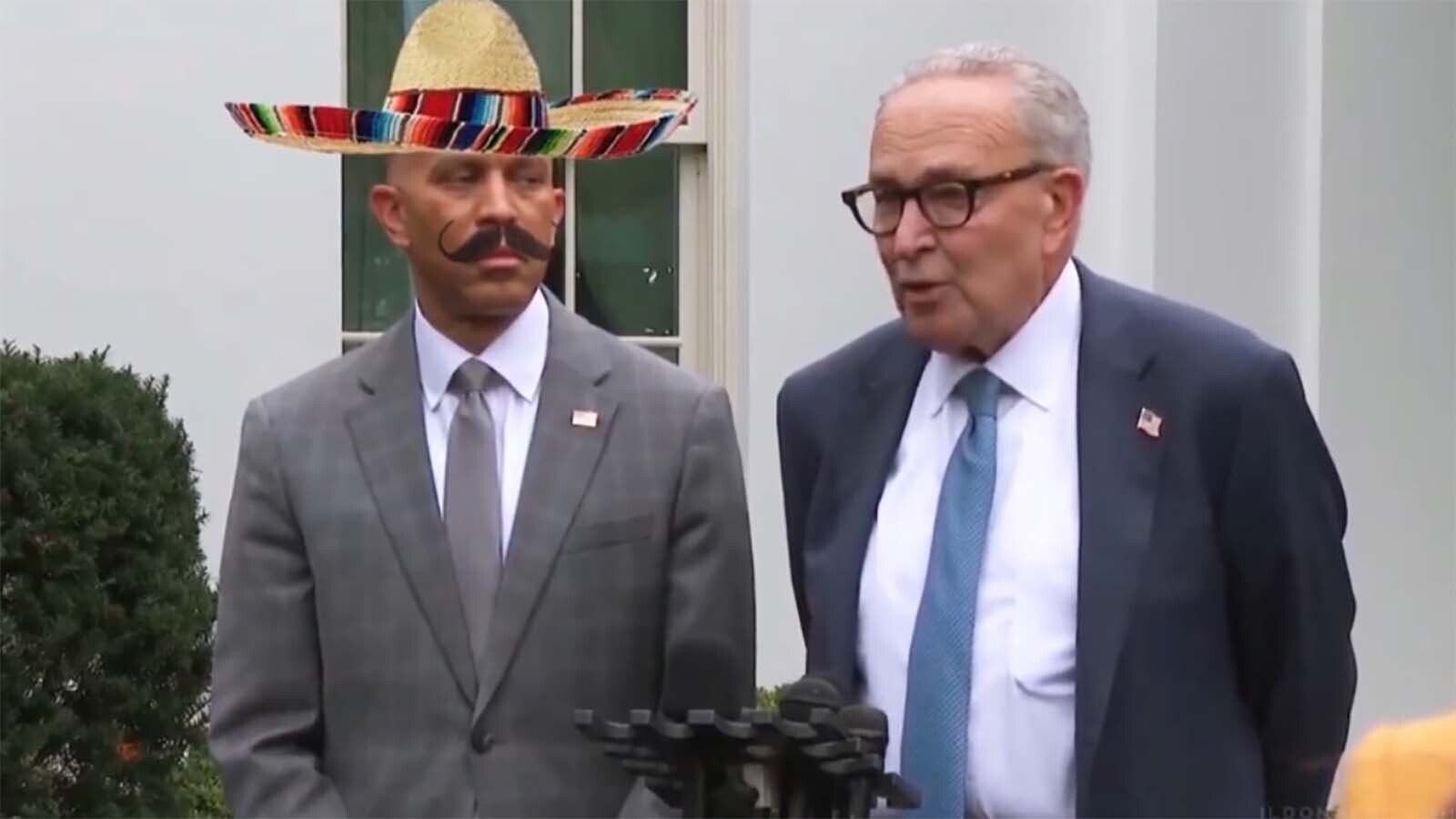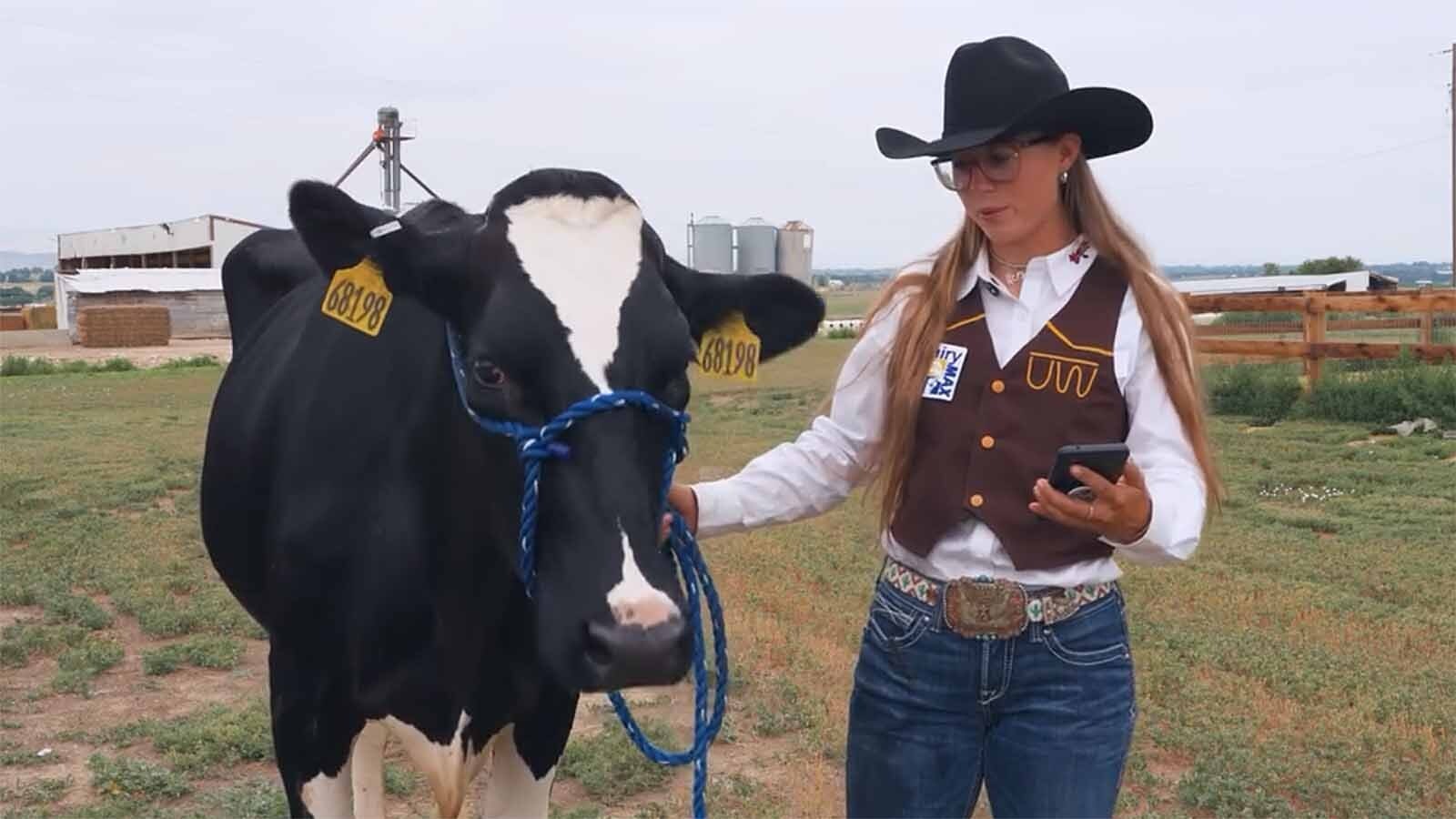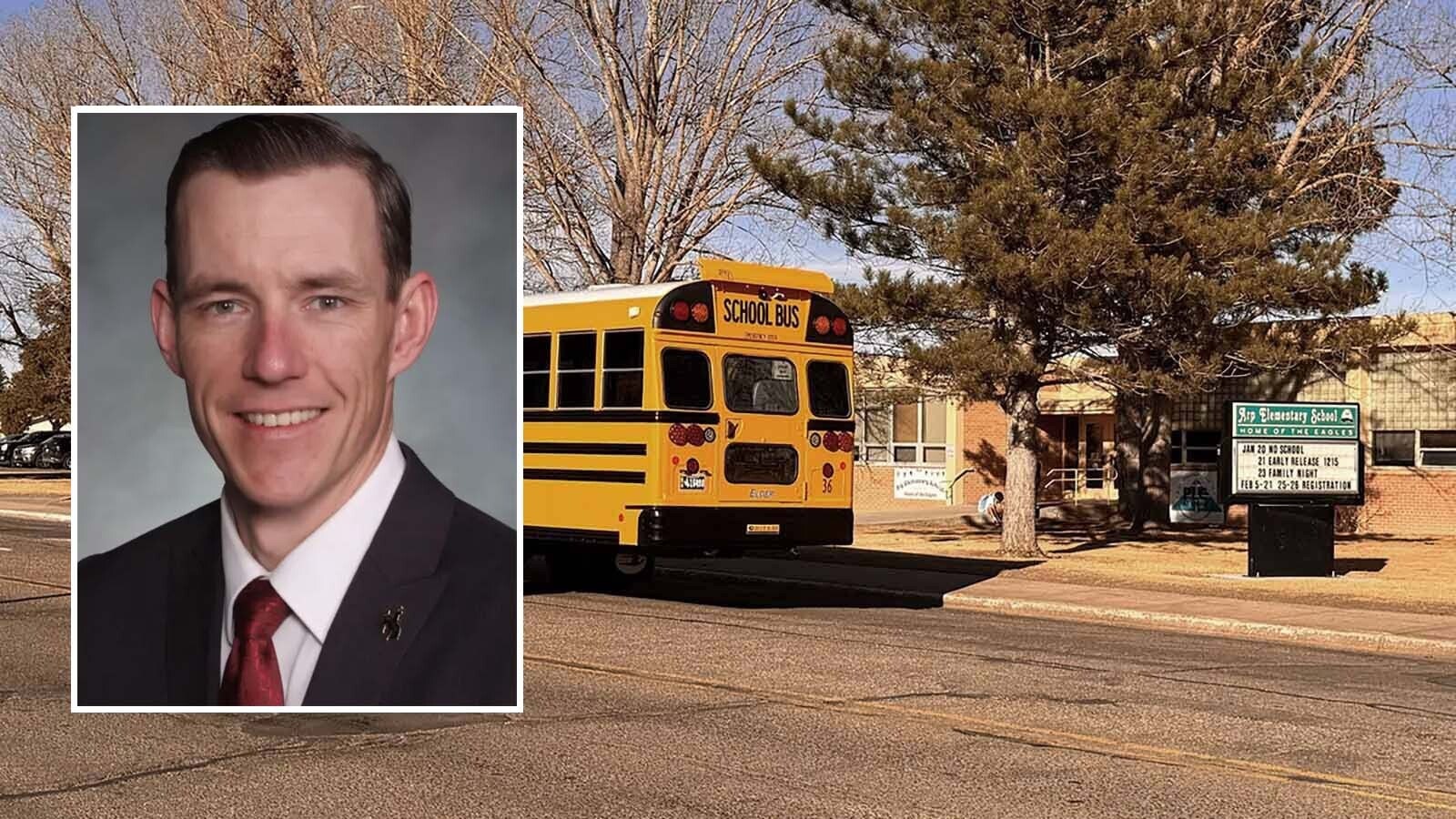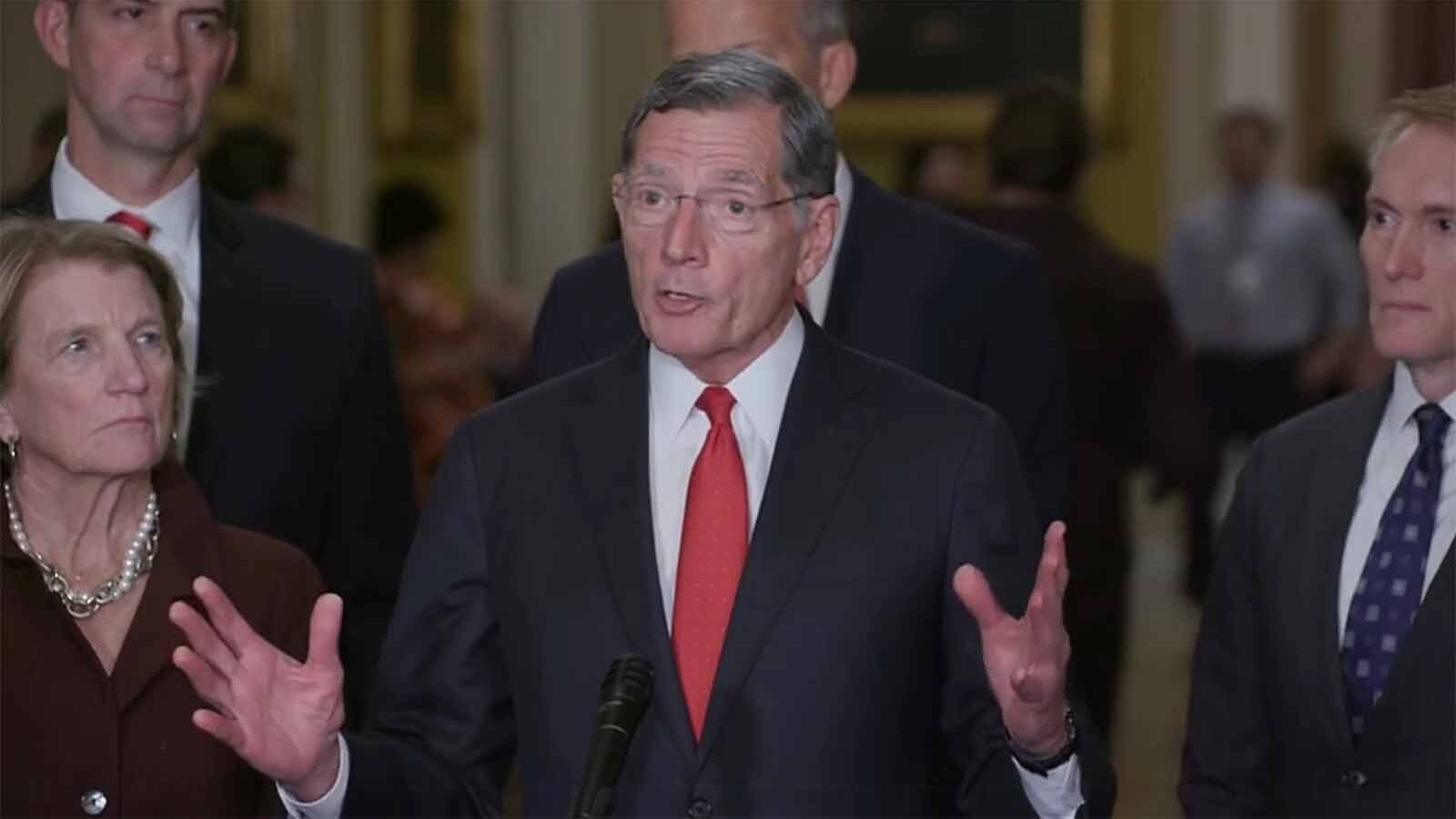The Wyoming Highway Patrol voiced its official support Tuesday in Casper for a state-level law policing non-English proficient commercial truck drivers.
As a result, the legislative Transportation, Highways and Military Affairs Committee asked its staffers to draft a bill that would expand Wyoming Highway Patrol inspectors’ enforcement of federal English proficiency regulations to all law enforcement agents in the state – and that would add other state-level penalties for truckers still driving after being pulled from the roads for non-English proficiency.
When the Wyoming Highway Patrol took a stand on the issue at the committee’s Tuesday meeting, its top officials referenced a recent crash in Florida on Aug. 12 that killed three people after a driver took an illegal U-turn. The driver, who had CDL’s from Washington and California, failed an English proficiency exam after the crash, according to the U.S. Transportation Department.
WHP officials also described industry issues they’ve seen, and referenced an April 28 presidential order tightening federal enforcement provisions.
“A lot of (trucking) companies out there, smaller companies, are taking risks and hiring drivers that aren’t qualified to drive commercial vehicles – and I think we’ve just seen that example in Florida,” said Wyoming Highway Patrol Lt. Kyle McKay, during a back-and-forth with committee members.
At one point Sen. John Kolb, R-Rock Springs, asked WHP’s top administrator, Col. Tim Cameron, if the agency wants a state trucker English proficiency law.
“Yes,” said Cameron. “It would aid traffic safety, public safety on our interstates… It would aid us, considerably.”
The Wyoming Trucking Association and Wyoming Towing and Recovery Professionals also voiced support of the bill draft during Tuesday’s meeting. An independent trucking business operator out of Sheridan County, Cathy Cline, testified that her insurance rates and known safety hazards are both increasing due to this issue.
None of the meeting attendees voiced opposition to the bill’s formation.
Committee Co-Chair Rep. Landon Brown, R-Cheyenne, said he wants to solicit as much input as possible before the committee’s third and final interim meeting in Cheyenne Oct. 20.
“I support the motion,” began Brown. “But I want to be very thoughtful about this. It is a hot topic, and I don’t disagree with any of the conversation we’ve had today. What I don’t want to do, is a knee-jerk reaction to anything (and) have us hamstring or pigeonhole our troopers or insurance carriers.”
Kolb, Brown and Co-Chair Sen. Stephan Pappas, R-Cheyenne, all stressed the need for input.
Brown called for committee input; Pappas asked also for industry input, and Kolb emphasized getting the bill draft out to the public ahead of the next meeting “so we could get as many comments as we can about this topic, so we can make the best bill draft possible.”
Sen. Jim Anderson, R-Casper, questioned whether the bill is necessary, saying the testimony he heard indicated that “the federal law they were executing was fine” except for some training difficulties.
Pappas countered: “I heard something different than you did, Senator Anderson. I really see a need for it.”
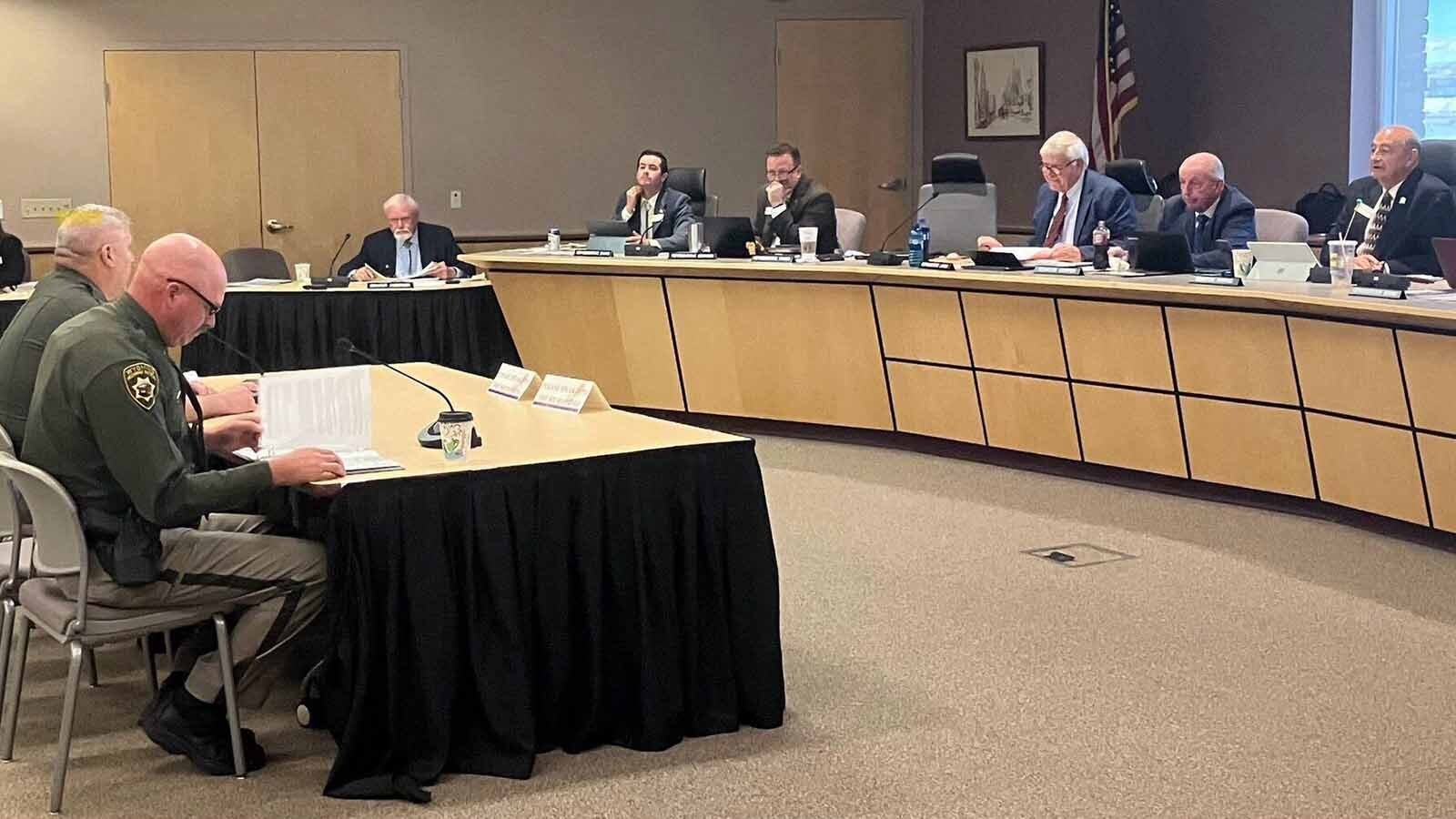
Some Background Here
The Federal Motor Carrier Safety Administration (FMCSA) has long established a standard requiring English language proficiency in commercial vehicle drivers. That proficiency standard includes being able to converse with the general public, understand signs and signals, respond to official inquiries and keep entries and logs.
In 2005, the Commercial Vehicle Safety Alliance amended its North American Standard Out-Of-Service Criteria to include violations of the English language proficiency requirement, according to the Legislative Service Office’s Tuesday presentation to the committee.
For a decade, drivers who couldn’t communicate in English were placed out of service.
The alliance voted in 2015 to remove that violation from its out-of-service list, and President Barack Obama’s FMCSA followed suit, removing its out-of-service requirement for English proficiency violations in 2016.
If a driver couldn’t read or write English, under that policy, inspectors still couldn’t cite the driver if he or she could communicate “sufficiently” with an inspector, according to the LSO presentation.
Then Came April
President Donald Trump on April 28 – after goading from U.S. Rep. Harriet Hageman, R-Wyoming, and some in the trucking industry – issued an executive order repealing the 2016 guidance.
An associated policy memorandum laid out a two-part test for inspectors:
Interview the driver and see if he or she can respond “sufficiently” to official inquiries and directions in English without tools like flash cards and phones apps – and pass a highway signs test.
Arkansas and Oklahoma both passed state-level laws giving other state agents, not just highway inspectors, enforcement authority on this issue.
A third law proposed in Tennessee died this year in that state’s senate, according to committee testimony.
Wyoming’s Answer
Cameron said the WHP started preparing for the president’s directive in advance.
“Once we received word that the English language proficiency (rule) was going to be changed by the president, we started preparing to provide direction and a testing mechanism for our troopers,” said Cameron, noting that lawmakers had the handout of that guidance.
The rule change multiplied Wyoming’s enforcement measures, McKay added.
In 2024, WHP “encountered” 379 violations of the English proficiency standard during its inspections, but inspectors weren’t able to pull those drivers out of service, he said.
Between Jan. 1 and June 25 of this year the agency marked 279 violations.
And from June 25 to Tuesday, the agency has marked 236 violations “where we put drivers out of service” for English non-proficiency, said McKay. He clarified that the rule applies to commercial trucks but also “hot shots, pickup trucks (with) gooseneck trailers – anything over 26,000 pounds traveling across our interstates” and some smaller-sized box trucks.
Pappas asked for an estimate of how many people would be pulled from service if other law enforcement agents – not just inspectors – could enforce the standard.
“If I was a betting man, I think it would triple,” said McKay.
The Great Ball Of Yarn
Both Oklahoma and Arkansas passed “good bills,” said Cameron, but he pointed to what he called “more teeth” in Oklahoma’s bill – since it would add fines and/or imprisonment for truckers caught driving again after being placed out of service.
McKay furnished an example of such an incident.
He said he had a driver placed out of service for non-English proficiency on Aug. 13. That driver had flown into the country on a work visa Aug. 9.
A second driver flew in Aug. 10, also on a work visa, as did a third Aug. 11, “all working for the same company,” said McKay.
When the first was placed out of service while passing through the Cheyenne port of entry on Interstate 25, he said, the company switched drivers. The second driver was caught driving without English proficiency – and had been hired in “a short amount of time, no training, (briefing on) company policies,” added the lieutenant.
Often, McKay added under Kolb’s questioning, the bond amount for being placed out of service is $270, and a driver may pay that on scene. If the driver is in the country on a work visa and has a Mexican or Canadian commercial driver’s license, “there’s really no teeth to enforce the out-of-service or keep that driver from driving off,” he said.
These Companies
Rep. Cody Wylie, R-Rock Springs, asked whether authorities could do anything to the companies that aren’t vetting their drivers.
McKay said violations logged during inspections affect companies’ safety scores, but the problematic companies will simply change their names and start a new company, bring back the same drivers and repeat the cycle.
It’s called “leap-frogging” in the industry, he said.
Misty Zimmerman, Program Manager at Wyoming Department of Transportation’s Driver Services, emphasized that Wyoming makes its CDL holders take the entire test in English.
CDL testing regulations do not prohibit states from issuing the knowledge skills test in multiple languages, the FMCSA told Cowboy State Daily in March.
“I don’t think any of these drivers (without English proficiency) are necessarily Wyoming CDL drivers,” said Zimmerman – implying that tightening Wyoming’s own licensing requirements won’t address the issue.
Wyoming reports violations of out-of-service orders to the states where truckers received their CDLs, she said, which leads to “federal disqualification.” But in the network by which Wyoming reports those violations, the original out-of-service order is “not a reportable offense.”
“That’s sort of the problem we have right now,” she added.
Clair McFarland can be reached at clair@cowboystatedaily.com.


